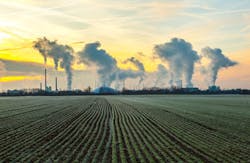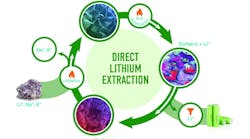Following the hard times that German chemical companies experienced in 2009 it appears that the country's chemical industry is approaching a real renaissance, as major industry players are ready to ramp up production, ICIS reported.
In an analysis of the German chemical sector, the website noted that the latest financial results are fueling a positive sentiment for the future of the industry, despite the squeezed European share of the global chemical market.
One of the clearest signals of renewed confidence is the uplift in plant investments, both in new facilities and in expanding existing plants. This is also an indicative of the growing competitiveness of the German market on a global scale, with the best performance expected from basic chemicals.
Despite the numerous challenges for the industry, ranging from the Fukushima nuclear disaster in 2011 to the unrest in North Africa and the Arabian Peninsula that put the global chemical industry under serious pressure, Germany has proved resilient. Thanks to its traditionally robust exports and high productivity, most of the chemical businesses there managed to make up for the steep decline of 17 percent in sales between 2008 to 2009 with a 16 percent rise the next year. Just a couple of years later, German chemical businesses are reporting significant sales growth figures and double-digit margins, the German Chemical Industry Association (VCI) said.
According to data from the European Chemical Industry Council (Cefic), Germany held the biggest share of the European market in 2011, with 29 percent of the continent's total sales of EUR539 billion ($702 billion). Germany was also the third strongest market globally, with revenue of EUR156 billion ($203 billion), following only China, which produced nearly half of the world's chemicals, and Japan.
RELATED: EU chemical production drops in 2012
The VCI estimated that in 2011 the German chemical industry used 19 million tons of fossil fuels, 2.7 million tons of renewable feedstocks and 20 million tons of minerals. Basic chemicals production volumes remained steady between 2000 and 2010, dipping slightly for some chemicals.
However, a rise in investments and increased production capabilities are set to change this. The biggest proportion of total investments has been allocated to basic chemicals but activity has been picking up in high performance plastics, specialty chemicals and final product segments.
One of the most significant investments will see a 220,000-tons-per-year increase in capacity at the Brunsbuttel toluene-2,4-diisocyanate plants in Dormagen and Ludwigshafen, both with current capacities of 300,000 tons per year. In addition a new steam reformer is being built in the former, while the latter will increase production of nitric acid, chlorine, syngas and hydrogen.
In the town of Leuna, in Saxony-Anhal, the construction of a new facility has been under way since July 2012. This will produce 15,000 tons a year of chlorine. Meanwhile, Krefeld-Uerdingen is ready to host a brand new 150,000 tons per year formaldehyde plant, whereas Munchmunster will boast a new 320,000 tons per year high density PE (HDPE) plant, ICIS said.



